Last week I made a playlist for my niece. She’s off to a military school called SERE for aviators to learn skills in Survival, Evasion, Resistance and Escape. It’s an intense, break-you-down-to-build-you-up kind of training. The school is so hard that my sister has frost bite on her feet from when she went through it. I know this training is going to push my niece to her limits and I wanted to do something that would let her know I’m rooting for her. I’ve shared before how much words motivate me but songs are something else entirely. So I thought what better gift to my niece than a playlist that she can listen to for inspiration.
My first mix tape set the bar for me. Steven presented me with two tapes accompanied by a multi-paged letter explaining each song. He was deeply poetic, artistic and had an eclectic taste in music and the songs he picked reflected that but were also just right for me. And by the way, he still sets the bar high. For his wedding last year, his wedding website had a hilarious and fantastic song list accompanied by pictures and stories reflecting his and his soon-to-be-spouses times together. This is all a long way of emphasizing that the best mixes aren’t just ripping a CD with a random set of songs – that’s just being lazy. You’ve got to pull together a theme with a deeply personal compendium of songs. Bonus points for discovering a soon to be hot song or maybe opening your receipient’s eyes to an obscure artist.
Awhile back, I read the memoir Love is a Mix Tape and it put into words why I love giving and getting mix tapes. The best mix tapes tell a story. They take us on a journey. They make us feel something. Whether it’s on a tape, CD or Spotify, I think sharing music is one of the most personal gifts you can give.
So when I’m saving candidate songs for my niece’s playlist and I come across a playlist I created on Spotify with the generic name Summer 2015, I get really excited. This takes me back to when I first was sick and starting to recover from my brain injury. It’s like a gift from past me to current me.
A few things make it odd. First, I don’t remember making this mix tape. That’s because my brain wasn’t saving memories for a time. Second, and probably more strange, is that I had zero tolerance for any noise during that time so what was I doing listening to music?
Music used to be just a part of my life – it was always on in the background, at home, in the car, wherever. But it’s all but disappeared since my brain injury. Part of my brain damage from encephalitis is something called hyperacusis or extreme sensitivity to sound. It’s gotten soooooo much better over the last few years but in its worst state, the smallest sound would leave me crying with unimaginable headaches and totally unable to function. I still wear ear plugs when I’m out in public to keep noise levels down and I don’t listen to the same kind of music I used to and at nowhere near the same volume levels. A good day for me is when I want to listen to music AND I can tolerate it at a higher level than level 1 on the sound control.
This Summer 2015 playlist is from the early days of my illness and recovery and since I don’t remember making this for myself, I’ve got a little kid at Christmas feeling wondering what’s underneath the wrapping paper? What was I trying to do for myself back then? Give myself strength? Courage? Remind me that I could get through it? I know how carefully I curate my music so I’m fairly certain, there’s going to be a profound message to myself coming through the songs.
“The times you lived through, the people you shared those time with – nothing brings it all to life like an old mix tape. It does a better job of storing up memories than actual brain tissue can do. Every mix tape tells a story.” – Rob Sheffield, Love is a Mix Tape
I click and stare at the playlist. I recognize a few of the artists and they’re not in my musical canon. No offense to Carly Rae Jepsen but she wouldn’t crack my top 100 musicians list. Others are just totally foreign names to me – who is Fetty Wap, Leon Bridges, D.R.A.M., and Jamie xx?
I start listening hoping for a revelation through the songs themselves. Skip. Maybe the lyrics possess a special message. Nope. These songs suck. Skip. Next one. They’re random. They have no meaning to me. It’s a tortuous playlist. Aside from the tear-jerking See You Again by Wiz Khalifa/Charlie Puts, there’s not a single song I’d ever listen to. Maybe with the exception of that time that my brain got squeezed against my skull and my brain cells started dying. Maybe then.
It’s a serious let down. I thought I was going to have this kick-a** soundtrack from the early days of my recovery that I can point to and remind myself what a fighter I was. Instead, it’s a spectacularly incoherent, hot mess of a playlist. And then there’s the whole idea that I was listening to Spotify doesn’t make any sense. If I could barely stand the sound of conversation, why was I trying to listen to music?
I think about this for awhile. In retrospect, it seems about right for my cognitive state during my encephalitis. I was “crazy” as my mom tells me. I made no sense most of the time. I did bizarre things. That Summer 2015 mix tape tells a story – I guess it’s the story of a woman with a damaged brain trying to make sense of the world around her and trying to hold onto the things she loved and had lost. It’s a story just like Rob Sheffield said, it’s just not the story I expected.
So here’s to my first real playlist in a long time and to my niece Emily for what I hope is just the right k ind of mix tape for your big training. Remember these words, “You’re an overcomer
ind of mix tape for your big training. Remember these words, “You’re an overcomer
Stay in the fight ’til the final round
You’re not going under
‘Cause God is holding you right now
You might be down for a moment
Feeling like it’s hopeless
That’s when he reminds you
That you’re an overcomer
You’re an overcomer”
I love you, sweetie. I am proud of you!
Love, Aunt Jenny
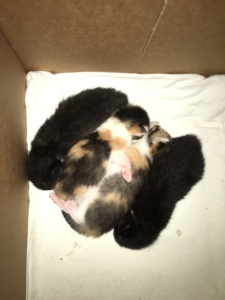 Back in July, I’d gotten a text from Chip, one of my best friends in life. He shared he’d been traveling for three weeks, had just gotten home and fed the feral cat who hung around his place waiting for her meal (ticket?). Situation normal until he goes out for a swim and comes back to discover the stray and a pile of kittens under his bed.
Back in July, I’d gotten a text from Chip, one of my best friends in life. He shared he’d been traveling for three weeks, had just gotten home and fed the feral cat who hung around his place waiting for her meal (ticket?). Situation normal until he goes out for a swim and comes back to discover the stray and a pile of kittens under his bed.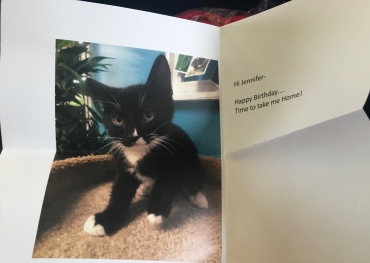
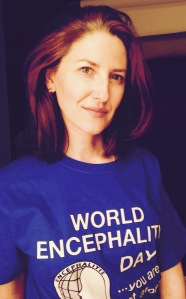
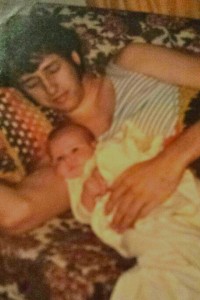
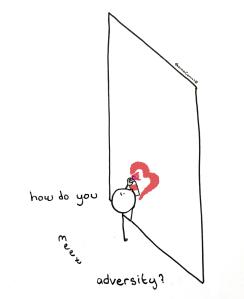 People have asked me how I keep going. Sometimes they even say, “I couldn’t do it if I were in your shoes.” I don’t find that motivating. I only know that I have to take a step forward and another step. There are hard days, difficult moments and lonely experiences. But without fail, I have always found something sunshiny, a spot of joy or laughter to fuel me for another day.
People have asked me how I keep going. Sometimes they even say, “I couldn’t do it if I were in your shoes.” I don’t find that motivating. I only know that I have to take a step forward and another step. There are hard days, difficult moments and lonely experiences. But without fail, I have always found something sunshiny, a spot of joy or laughter to fuel me for another day.